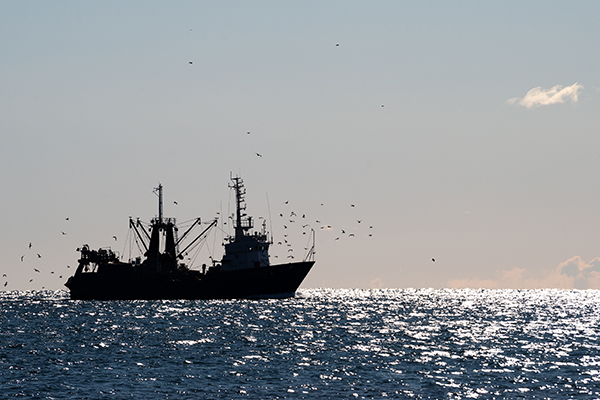Measures aim to decarbonize the sector and curb impact on marine ecosystems

The European Commission has introduced a package of measures to gradually improve the sustainability and resilience of the EU’s fisheries and aquaculture sector. The measures, which were released as four publications, set out a pathway to curb destructive fishing practices, restore wildlife, protect marine ecosystems and decarbonize the fisheries sector.
“We want to establish a ‘Pact for Fisheries and Oceans’ to work together with everyone to ensure sustainable and resilient fisheries, protect and restore our marine ecosystems, make the sector profitable and strengthen our food security in the long term,” said Virginijus Sinkevičius, Commissioner for Environment, Oceans and Fisheries. “We are proposing concrete actions to restore marine ecosystems and to reduce the impact of fishing activities on the marine environment, thus responding also to the commitments the EU made in the historic agreement reached at COP15 in Montreal on a new global biodiversity framework.”
A “Pact for Fisheries and Oceans” will also support the full implementation of the Common Fisheries Policy (CFP) in coordination with Member States and fisheries stakeholders, including fishers, producer organizations, regional advisory councils, civil society and scientists. The proposals also aim to make the sector an attractive job place for the younger generations.
“We are also promoting an energy transition to help the sector adapt its vessels and equipment, improve working conditions and move towards renewable, low-carbon energy sources,” said Sinkevičius. “We know this is a challenging task. For this reason, the transformation will be gradual and we will promote dialogue between all communities to lay the foundation for a resilient fisheries and aquaculture sector.”
The measures include four elements:
- Communication on the energy transition of the EU fisheries and aquaculture sector. The commission has proposed to reduce dependency on fossil fuels and aim towards climate-neutral fisheries and aquaculture sector, in line with one of the ambitions of the European Green Deal to reach climate neutrality in the EU by 2050. It is proposing measures to support the sector in accelerating its energy transition, by improving fuel efficiency and switching to renewable, low-carbon power sources.
- An action plan to protect and restore marine ecosystems for sustainable and resilient fisheries. The commission has presented a marine action plan to reinforce the CFP’s contribution to the EU’s environmental objectives and reduce the adverse impact of fishing activities on marine ecosystems, particularly through seabed disturbance, by-catch of sensitive species and effects on marine food webs. The action plan contributes to delivering on the EU Biodiversity Strategy for 2030 and its commitment to legally and effectively protect 30 percent of the seas, with one-third being strictly protected. To fulfill this goal, the commission calls on member states to take fisheries conservation measures to protect and manage marine protected areas (MPAs) effectively, with a clear timeline.
- Communication on the common fisheries policy today and tomorrow. To establish a united vision, the commission has proposed a ‘Pact for Fisheries and Oceans’ to build a common understanding of the objectives to be achieved and help adapt the policy where necessary.
- A report on the common market organization for fishery and aquaculture products.
However, World Wildlife Fund (WWF) European Policy Office has critiqued the package of measures, is calling on the commission and member states to “develop ambitious roadmaps” to achieve COP15 commitments to halt and reverse biodiversity loss.
“After a two-year delay, the action plan to protect and restore marine ecosystems calls for member states to urgently adopt long overdue time-bound, ambitious and concrete measures to deliver an informed, inclusive, fair and just transition towards sustainable and ecosystem-based fisheries management,” wrote the organization in a press release. “Such measures are critical to bridge the decades of separation between fisheries and environmental policies that have resulted in depleted fish populations and put the ecosystems upon which fishers depend under enormous pressure. Regrettably, the commission’s ambition is, at best, a bare minimum to meet the EU’s environmental and fisheries objectives, so member states must be ambitious in the measures they adopt in response.”
Follow the Advocate on Twitter @GSA_Advocate
Now that you've reached the end of the article ...
… please consider supporting GSA’s mission to advance responsible seafood practices through education, advocacy and third-party assurances. The Advocate aims to document the evolution of responsible seafood practices and share the expansive knowledge of our vast network of contributors.
By becoming a Global Seafood Alliance member, you’re ensuring that all of the pre-competitive work we do through member benefits, resources and events can continue. Individual membership costs just $50 a year.
Not a GSA member? Join us.



